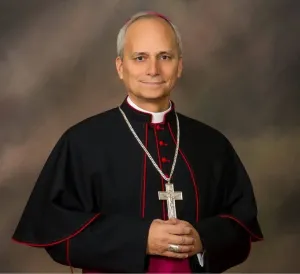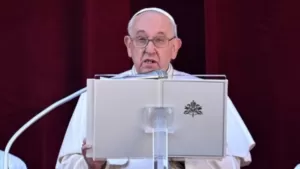Pope Francis: A 12-Year Papacy of Compassion and Reform

Pope Francis, born Jorge Mario Bergoglio, served as the 266th pope of the Roman Catholic Church from March 13, 2013, until his death on April 21, 2025. His 12-year papacy was a transformative period, characterized by a profound commitment to humility, social justice, and reform. Leading over 1.4 billion Catholics worldwide, Francis left an indelible mark on the Church and global society through his emphasis on compassion, inclusivity, and environmental stewardship. This article chronicles his life, papacy, health struggles, and enduring legacy.
Early Life and Path to the Papacy
Jorge Mario Bergoglio was born on December 17, 1936, in Buenos Aires, Argentina, to Italian immigrant parents. Raised in a working-class family, he trained as a chemist before entering the Jesuit order in 1958. Ordained a priest in 1969, Bergoglio rose through the ranks, becoming Archbishop of Buenos Aires in 1998 and a cardinal in 2001. Known for his simplicity—often riding public transport and living modestly—he earned the nickname “the Slum Bishop” for his work with the poor.
Following Pope Benedict XVI’s historic resignation in 2013, Bergoglio was elected pope at the age of 76, choosing the name Francis in honor of St. Francis of Assisi, a symbol of poverty and peace. His election as the first Jesuit pope and the first from the Americas signaled a shift toward a more global and pastoral Church.
A Papacy of Compassion and Reform
Pope Francis’ leadership was defined by a return to the Church’s roots as a servant of the marginalized. From the outset, he rejected lavish trappings, opting to live in the Vatican’s modest Casa Santa Marta guesthouse rather than the Apostolic Palace. His early words, “How I would like a Church which is poor and for the poor,” set the tone for his papacy.
Key Initiatives and Teachings
- Social Justice and Inclusion: Francis championed the cause of the poor, refugees, and disenfranchised. His 2015 encyclical Laudato Si’ called for urgent action on climate change, framing it as a moral issue tied to the exploitation of the vulnerable. He criticized unchecked capitalism and consumerism, urging global leaders to prioritize equity.
- Church Reform: Francis sought to modernize the Vatican’s bureaucracy, tackling financial scandals and promoting transparency. He reformed the Curia, appointed women to significant roles, and encouraged a “synodal” approach, emphasizing dialogue and collaboration among bishops and laypeople.
- Inclusivity: His outreach to divorced Catholics, the LGBTQ+ community, and other faiths was groundbreaking. While upholding traditional doctrine, he emphasized mercy over judgment, famously saying, “Who am I to judge?” regarding gay individuals. His efforts to bridge divides included historic meetings with Muslim, Jewish, and Orthodox Christian leaders.
- Global Diplomacy: Francis was a vocal advocate for peace, mediating conflicts and condemning violence. He made high-profile visits to conflict zones, including Iraq, South Sudan, and the Central African Republic, promoting reconciliation and interfaith dialogue.
Controversies and Criticism
Francis’ progressive stance drew criticism from conservative factions within the Church, who accused him of diluting doctrine on issues like marriage and sexuality. His reforms also faced resistance from entrenched Vatican insiders. Conversely, some liberals felt his changes did not go far enough, particularly on women’s ordination and celibacy for priests. Despite polarization, Francis remained steadfast, prioritizing pastoral care over ideological battles.
Health Challenges and Final Days
In his later years, Pope Francis faced significant health challenges. He underwent intestinal surgery in 2021 and struggled with mobility due to knee pain, often using a wheelchair. In early 2025, he battled a severe respiratory infection and bilateral pneumonia, requiring hospitalization in February. Despite a brief recovery, his health deteriorated. On April 21, 2025, at the age of 88, Francis suffered a stroke and cardiovascular collapse, passing away in the Vatican. The global outpouring of grief underscored his profound impact.
Legacy and Impact
Pope Francis’ 12-year papacy reshaped the Catholic Church’s identity and global perception. His emphasis on mercy, environmental responsibility, and dialogue left a blueprint for future leaders. Key achievements include:
- Environmental Advocacy: Laudato Si’ inspired global movements for climate action, influencing policy and grassroots efforts.
- Synodality: His push for a more inclusive, listening Church empowered laypeople and fostered greater accountability.
- Moral Leadership: Francis’ humility and authenticity restored trust in the Church for many, even amidst scandals.
Challenges remain, including ongoing debates over doctrine and the pace of reform. His successor faces the task of balancing Francis’ vision with the Church’s diverse global constituency.
Conclusion
Pope Francis was a shepherd who walked among his flock, embodying the Gospel’s call to serve the least among us. His 12 years as pope were a testament to the power of compassion, courage, and conviction. As the world mourns his passing, his words resonate: “Let us dream of a new world, where justice and peace embrace.” His legacy endures in the hearts of millions, Catholic and non-Catholic alike, as a beacon of hope in a divided world.






